US Extends Protection To Pompeo, Hook Over 'Serious' Iran Threats

Washington extended protection for Mike Pompeo and Brian Hook, officials in Donald Trump’s administration, over the Islamic Republic’s threats, AP reported on Wednesday.

Washington extended protection for Mike Pompeo and Brian Hook, officials in Donald Trump’s administration, over the Islamic Republic’s threats, AP reported on Wednesday.
Last month, the State Department informed Congress that the threats against Pompeo, former secretary of state, and Hook, former special envoy for Iran, are still “serious and credible,” which justify the renewal of their protection programs.
According to the Associated Press, the notifications to Congress regarding the extension were signed by Deputy Secretary of State for Management Richard Verma.
This is the 13th and 16th time that the State Department has extended protection to Pompeo and Hook, respectively, since they left office. The 24-hour security measures to protect the former officials cost the US government more than $2 million per month.
Pompeo and Hook were among the staunch supporters of President Donald Trump’s “maximum pressure” sanctions campaign against Tehran.
The Islamic Republic has time and again threatened revenge against former US officials for the killing of Qasem Soleimani, the Iranian regime’s top military and intelligence operator in the Middle East who died in a US drone strike in January 2020 in Iraq.
In February 2023, Amirali Hajizadeh, the head of the Revolutionary Guards aerospace force, repeated the threat to avenge the US killing of Soleimani.
“God willing, we are looking to kill Trump. Pompeo ... and military commanders who issued the order (to kill Soleimani) should be killed,” Hajizadeh said.
Another former official with government protection is John Bolton, UN ambassador during President George Bush and National Security Advisor during Trump. The Justice Department revealed in August 2022 that an operative of Iran’s Revolutionary Guard tried to hire a hitman in the US to kill Bolton.
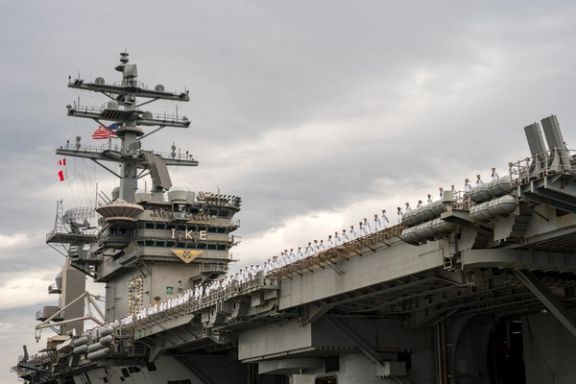
The Red Sea got closer to war Wednesday, as the UN Security Council asked Houthis to halt attacks on ships and the Iran-backed group exchanged threats with the US military.
Hours before the UNSC met, 12 countries led by the United States issued a joint statement to warn the Houthis of what awaits them if they continue their “illegal, unacceptable, and profoundly destabilizing” attacks in the Red Sea.
“We call for the immediate end of these illegal attacks and release of unlawfully detained vessels and crews,” read the statement. “The Houthis will bear the responsibility of the consequences should they continue to threaten lives, the global economy, and free flow of commerce in the region’s critical waterways.”
The statement was notably reposted on X by the US Central Command, making it look like a ‘final warning’ from the force most likely to follow through on the threat.
It comes amid reports that the Biden administration may be considering direct strikes on the rebels and the US military readying options for it, in case the attacks continue.
Signatories of the statement include Germany, Japan and the UK. The only country from the Middle East to have signed the statement is Bahrain, which hosts the US Fifth Naval Fleet. The UAE and Saudi Arabia are the conspicuous absentees, weary, perhaps, of potential repercussions of getting on the wrong side of the Houthis and their sponsor Iran.
Both have maintained their belligerent tone so far.
“The Yemeni Armed Forces warn the American enemy or any other party that any American aggression will not go unanswered or unpunished,” said Houthi military spokesperson Yahya Sarea in a televised briefing Wednesday, reiterating their will to target Israel-bound vessels until “necessary supplies of food and medicine” are delivered to the people besieged in Gaza.
Houthis –funded, guided, armed by Iran– have targeted more than 30 commercial vessels in the Red Sea (and a few American warships even) since Israel began its onslaught on Gaza. As a result, 18 shipping companies have re-routed away from the Red Sea, according to a UN maritime agency report, and “more than $200 billion in trade” has been diverted from the crucial route, which leads to the Suez Canal and from there the Mediterranean Sea.
As political as the current crisis is, the decisive factor pushing the US and others towards an unwanted war with Iran and its proxies may very well be the economic burden.
According to a CNBC report Wednesday, since the start of 2024, rates for freight from Asia to northern Europe and North America have increased around 100% and 60% respectively. The hike in the cost of shipping will push up the price of consumer goods –or the ‘cost of living’, which scares most governments.
It is partly the reason why President Biden has allowed Iran to sell oil in spite of sanctions: to keep US fuel prices low as he bids for reelection later in the year. But his policy seems to have had the opposite effect: emboldening the Iranian regime and its proxies to effectively close the Red Sea and disrupt global trade.
Even China is alarmed by the disruption of maritime trade.
“China is concerned about the repeated incidents of attacks and seizures of merchant ships in the Red Sea,” said the Chinese representative at the UN Security Council Wednesday. “China also urges the parties to respect and guarantee the freedom of navigation for all countries in the waters.”
More notably, however, the Chinese mission highlighted the link between Houthi attacks and the ongoing Israeli onslaught on Gaza.
“The current tensions in the Red Sea are one of the manifestations of the spillover effects of the conflict in Gaza,” said Geng Shuang, deputy permanent representative of China to the UN, tacitly countering Israel’s argument at the same session that the Houthi threat in the Red Sea is not Israel's problem.
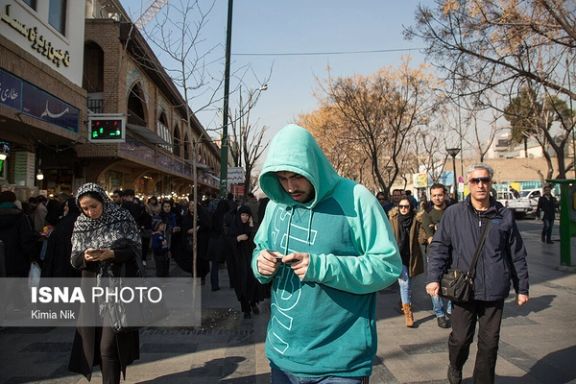
Iranians, predominantly dependent on mobile data, are outraged by the government's recent approval of price hikes, with many alleging corruption.
“Where there is monopoly, collusion takes shape between [operators] and the government, and they scam the people in any way that they wish, same as in the case of car manufacturers, internet taxis, pharmaceutical import companies, and many other businesses that get special authorizations from the government,” a reader of Khabar Online wrote in response to the Tehran-based news website’s enquiry from readers.
“Salaries increase by 18 percent, which will be implemented next year, but prices increase by 34 percent and more. I will just remain silent and leave [the response] this to God,” another reader answered.
Around 90 percent of Iranians use mobile internet rather than broadband. According to government figures, there are 10.6 million broadband and 84.1 million mobile internet subscribers.
Operators had petitioned the government to increase their broadband and mobile tariffs by 100 percent, the government claimed, but have only been allowed an increase of 34 percent.
Media, however, have reported that operators have increased the prices much more. According to Fararu news website, the cost of data packages sold by Hamrah Avval and Irancell, two of the country’s top mobile operators, has gone up by up to 156 percent. A 50 GB package sold by Hamrah Avval for 1,190,000 rials ($2.38) previously, Fararu said, has gone up to 3m rials ($6).
Most criticisms are directed at President Ebrahim Raisi who during his inauguration in 2021 declared that easy access to the Internet is a right for all and promised free internet for low-income families.
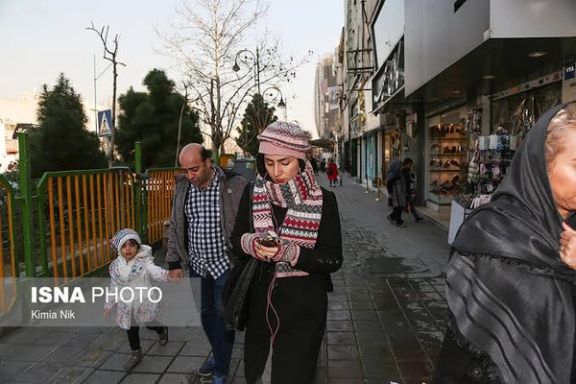
The ministry announced this week that the government will give the heads of households in the three lowest income groups ten gigabytes of free mobile internet for accessing domestic websites (five gigabytes for international traffic) every four months for which they need to register with the government.
The free internet can only be used on one phone registered to the head of the household.
Even the ultra-hardliner government supporter Kayhan newspaper has admitted that the quality of internet services available to Iranians has caused public discontent.
Considering the low speed of the internet and operators’ “abnormal request” to the government to increase data package tariffs by 100 percent, Kayhan wrote, the government must resolve the problem of the slow internet speed before allowing the tariffs to rise.
Users are also forced to purchase costly Virtual Private Networks (VPNs) and anti-filtering software to access blocked websites and major social media platforms and messaging applications such as Instagram, and WhatsApp, which are extremely popular with Iranians and used by many large and home-based business.
Speaking to Fararu news website Sunday, the former head of Iranian parliament's National Security and Foreign Relations Committee, Heshmatollah Falahatpisheh, said the government’s decision to increase the cost of internet could potentially entail an increase in the cost of VPNs. He alleged that there are people with influence in the government who benefit from these increases.
Falahatpisheh argued that restricting people’s access to the Internet, which forces them to seek ways to circumvent filtering, benefits those who are granted VPN sales permits by the government.
“Why are some people granted the permit to break the filters if some sites and content on the Internet pose a danger to the country's security and are blocked?” he asked.
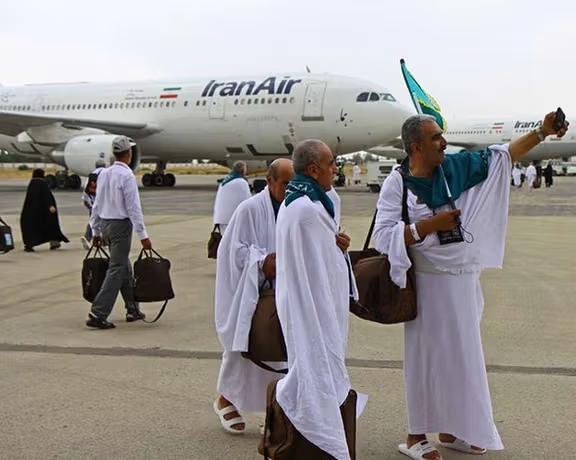
Flights to Saudi for Iranian pilgrims traveling to Umrah have been canceled amid ‘technical disagreements’ between the two nations.
The anticipated journey was scheduled to commence on Wednesday morning, marking the first pilgrimage group after a 9-year diplomatic hiatus between Tehran and Riyadh.
However, a "technical disagreement," as described by the minister of culture, led to the cancellation of the flight.
The National Airline of Iran (Homa) had previously announced plans for two daily flights for Umrah operations, preparing to dispatch 30,000 Iranian pilgrims to Saudi Arabia.
Hesam Qorbanali, spokesperson for Homa Company, stated on Wednesday that the Islamic Republic's aircraft could not proceed to Saudi Arabia and Jeddah Airport due to the "non-receipt of the necessary final permit."
Following the announcement, Mohammad Mehdi Esmaeili, the Minister of Culture, attributed the delay in Umrah flights to a "technical disagreement" between the airlines of the two countries, reassuring that the issue is "not serious."
Authorities of the Islamic Republic had earlier outlined the travel plans for Iranian pilgrims, scheduled from January 3 through 11 airports in the country.
Since the suspension of Umrah in 2015 and the emergence of disagreements between Tehran and Riyadh, approximately six million Iranians have been awaiting the resumption of Umrah. The minister of culture had previously promised that before the summer of 2024, around 400,000 people would undertake the Umrah pilgrimage.
The relations between the Islamic Republic and Saudi Arabia have been strained over the years, with heightened tensions due to Iran's support for Shia paramilitary groups, notably in Yemen.
However, after a seven-year diplomatic hiatus, Tehran and Riyadh reached an agreement in February of the previous year to resume diplomatic relations. The agreement, mediated by China during the visit of then Supreme National Security Council Secretary Ali Shamkhani to Beijing, paved the way for a subsequent trip by Ebrahim Raisi, the President of the Islamic Republic, to Saudi Arabia.
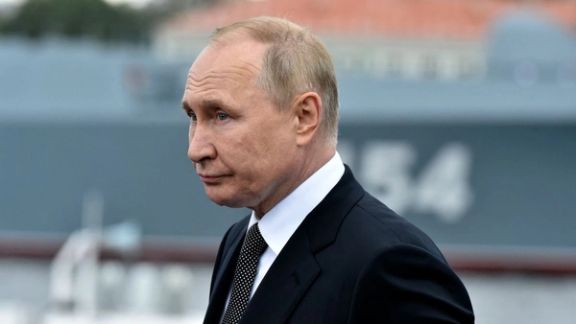
Iran’s allies were quick to condemn twin blasts at an event commemorating the death of Quds Force commander Qassem Soleimani.
Russian President Vladimir Putin labeled the attack "shocking in its cruelty and cynicism."
President Recep Tayyip Erdoğan of Turkey denounced the explosions as an "atrocious terror attack," expressing deep sadness and solidarity with the Iranian people.
The explosions occurred during commemorations for the fourth anniversary of Qasem Soleimani's death, resulting in at least 103 fatalities and over 170 injuries—marking the deadliest attack in Iran since the 1979 Islamic revolution.
Iranian President Ebrahim Raisi vowed to “identify and punish the perpetrators through Iranian security and law enforcement forces.”
During Soleimani's 2020 funeral, following his assassination by a US drone strike, a stampede in a procession of thousands led to at least 56 fatalities and over 200 injuries.
The slain commander headed Iran’s proxy militias around the region.

To curb increasing Iranian emigration, the Islamic Republic now withholds university degrees until substantial payments are made.
Iranian education authorities have hiked the costs of releasing academic degrees more than 30 times under the pretext of preventing brain drain. Iran is demanding exorbitant fees from the graduates of the so-called governmental universities who already went through the corruption-struck national admission exam to get the state-promised free education.
According to Hamoun Sabti, the secretary of the Transparency Watchdog Commission – an NGO affiliated with Iran’s Conservatives, “the average fee for every semester of study for some bachelor's degrees has surged from about $20 to $600.” It means that for a four to five-year program, an Iranian must pay a minimum of $5,000 for official documentation of a degree that offers no employment or income guarantees. The average monthly income for Iranians ranges from $100 to $300.
The rates had not changed significantly for over a decade until last year, when the Ministry of Science officially raised the fees six to 10 times. However, the graduates are asked to pay even more when they apply to receive their degrees. Ranges differ according to subject and level with master’s and PhD graduates paying the most and healthcare majors facing costs in excess of $2,000 per semester. For a PhD in a healthcare major, a five-year program in Iran, the cost for the degree from a state university can go over $20,000.
The decision was made about a year after Supreme Leader Ali Khamenei criticized the growing trend of brain drain and emigration of elites, tacitly giving the green light for stringent financial policies aimed at reversing the trend and holding the country's brightest minds hostage.
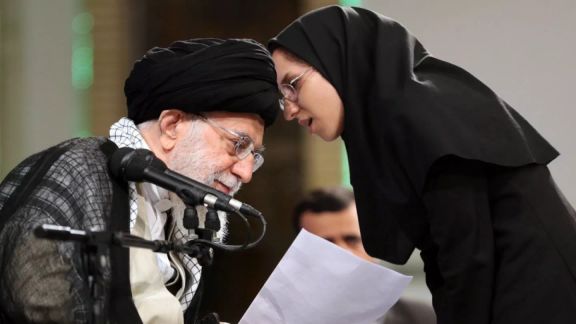
According to official statistics, more than 3,000 nurses and 10,000 physicians migrate annually, with an average of 16,000 students leaving Iran each year to pursue further education. The Tehran-based Nilgam Center, an agency providing services to Iranians seeking to emigrate, claims that between 2010 and 2020 roughly 500,000 migrants left the country permanently. In April 2020, the Stanford Iran 2040 Project, reported in April 2020 that the population of Iran-born emigrants increased from about half a million before the 1979 revolution to 3.1 million in 2019. The top destinations were the United States, Canada, Germany and the United Kingdom.
Last year, more than 34,000 students and graduates signed a petition, calling on the Transparency Watchdog Commission to intervene. The head of the NGO, former lawmaker Ahmad Tavakkoli, wrote to President Ebrahim Raisi, asking him to annul the decision, but to no avail.
Sabti emphasized that such a decision should have been announced before implementation to prevent dissatisfaction in society. "If it is necessary to increase the fees by 30 to 50 times, the previous executives should be accountable for why it has not happened until now.If the increase is unreasonable, why causing dissatisfaction in society?” he noted.
Critics argue that the new rates should not apply to those who graduated before the fee increase, but authorities insist that the law applies to everyone. Last month, Iran’s Administrative Court of Justice voted in favor of the Science Ministry – the main authority that issues degrees – upholding that “the time of payment, not the time of study" is the base to calculate the fees. The ruling was issued following separate complaints filed by 26 students and graduates against the Ministry. Several university newsletters called the decision “taking university degrees hostage.”
Technically, the Islamic Republic justifies the fee – officially called the Cost of Canceling Free Education Service Commitment -- as compensation for the years a graduate must work in service to the country, twice the education timespan. However, in the absence of official employment opportunities, degree-holders must pay even higher than private university tuition to obtain their degrees. According to a report published earlier in the month by Nature, Iran’s universities are among the least trusted in the world.
Sabti said, “Some argue that the new rates will reduce brain drain and prevent the emigration of elites from the country. This notion is akin to believing that increasing gasoline prices would solve major cities' traffic problems. Unfortunately, we have seen that with the rising cost of gasoline, the traffic problem has not been resolved.”
While the Islamic Republic authorities justify the policy as a measure against brain drain, it is also perceived as part of the cash-strapped government's efforts to pocket more from people's wallets. According to reformist commentator Abbas Abdi, the government compensates for its inefficiency in boosting revenues from oil sales by raising taxes and tariffs imposed on the general population.